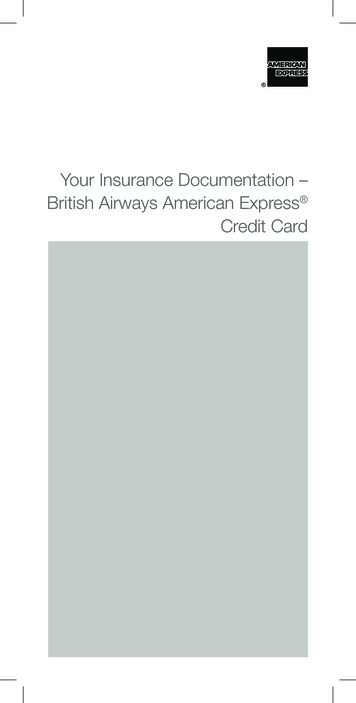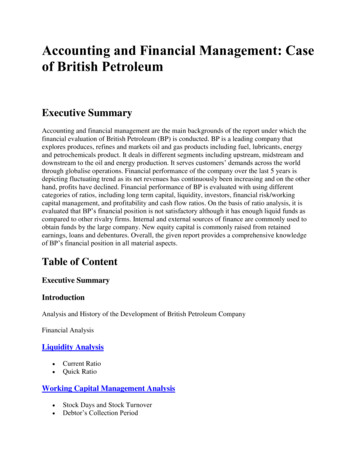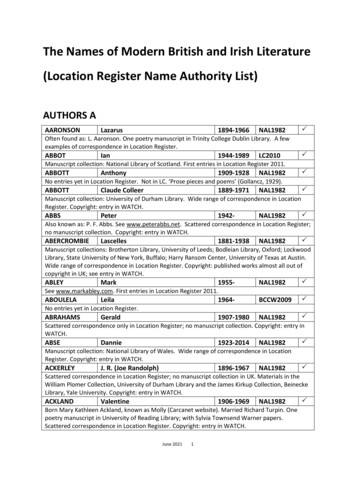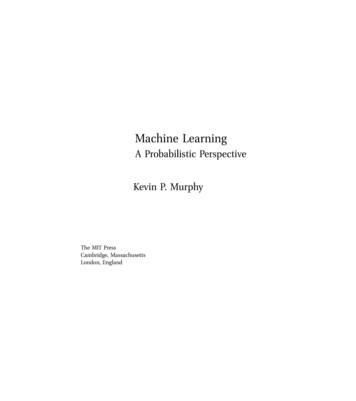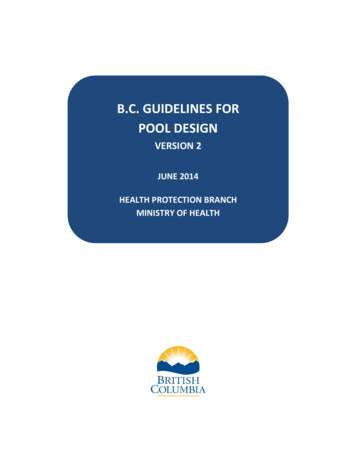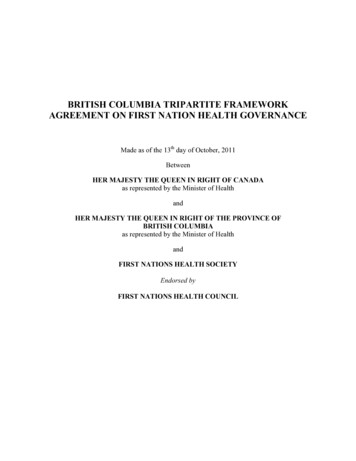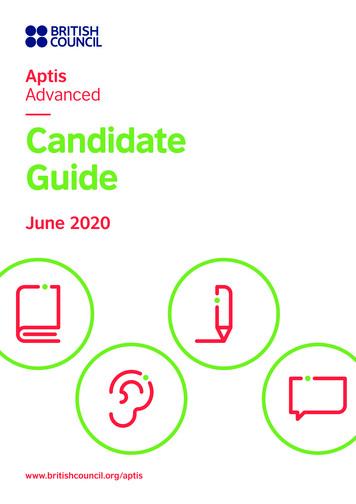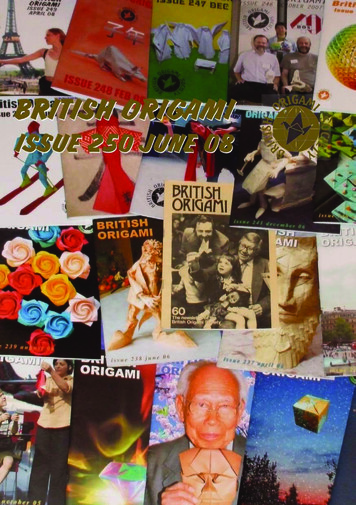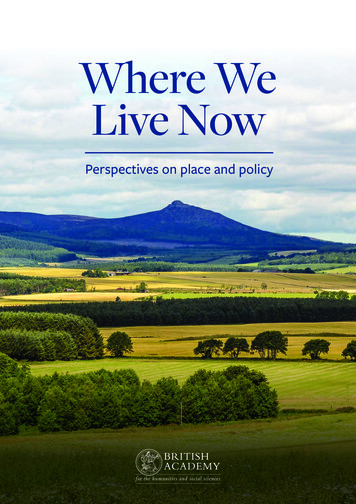
Transcription
British EnglishAndAmerican English
British English and American EnglishIf you are planning a trip to America butyou’ve been studying British English (orvice versa), you could have a few problemson your trip. For example, imagine one daythat you really fancy eating this- If you ask someone in the UK where you can buy ‘chips’ from,they’ll probably send you to a local chippy(fish and chips shop) or to MacDonald’s.However, if you ask someone in Americathe same question, they will probably tellyou to go to a supermarket, thinking youwant this - Although technically we all speak the same language (English),there are many differences between British English and AmericanEnglish:Pronunciation – Although the word might be spelt the same, it ispossible that people from the UK and America pronounce itdifferently. E.g. the word ‘tomato’ is pronounced ‘tom-ah-to’ inthe UK but ‘tom-ay-to’ in the USA and the word ‘mobile’ ispronounced ‘mow-bile’ in the UK but ‘mow-bl’in the USA.
Spelling – There are a few majorspelling differences between Britishand American English. This is becauseBritish English has generally kept thespelling of words that it has taken fromother languages but American Englishhas changed the spelling to look morelike how the word actually soundswhen you say it.For example:British EnglishAmerican ellingtravelinglicencelicenseprogrammeprogram
Grammar – There are many grammatical differences betweenAmerican and British English. For example, if someone asks if youare hungry but you have just finished your lunch, in BritishEnglish you would need to use the present perfect tense, “No,I’ve eaten already”, but in American English you can use the pasttense, “No, I ate already” (this would be incorrect in BritishEnglish).Vocabulary – As you can see, there are many differencesbetween British English and American English. However, themost complicated for English language learners is probably thedifferences in vocabulary, including idioms and phrasal verbs.Below you will see a few of the main vocabulary differencesbetween British and American English:
British EnglishAmerican ot (of a car)trunkchipsfries or French friescrispspotato chipsdustbin or bingarbage can or trash canfilmmovie (or film)flat (to live otorwayfreeway or expresswaynappydiaperpavementsidewalkpetrolgas or gasolinepostcodezip ts (or trousers)tube or undergroundsubwayzipzipper
As you can see, there are many differences between AmericanEnglish and British English but don’t worry about it too much.Most Americans and Britons know many of the differences soyou shouldn’t find yourself in too much trouble when you go onholiday! The most important thing to remember is try to beconsistent (especially when you are writing English) – decidewhich type of English you are going to use and stick with it.It is also useful to decide which type of English you want to workon – if you want to learn British English, it is a good idea to studyat a school in the UK (or the USA for American English) or checkwhere the teachers are from before you book a course in yourcountry.
Have fun with English!Look at these pairs of words below. From the meaning or spelling, canyou guess if they are British English or American English?1. Aeroplane – airplane2. Car park – parking lot3. Theatre – theater4. Drugstore – chemist5. Aluminium – aluminium6. Soccer – football7. Lorry – truck8. Cell phone – mobile phone9. Trainers – sneakers10.Defense – defenceAeroplane (BE) – airplane (AE), Car park (BE) – parking lot (AE), Theatre (BE) – theater (AE),Drugstore (AE) – chemist (BE), Aluminium (BE) – aluminium (AE), Soccer (AE) – football (BE),Lorry (BE) – truck (AE), Cell phone (AE) – mobile phone (BE), Trainers (BE) – sneakers (AE),Defense (AE) – defence (BE)Answers:
British English and American English If you are planning a trip to America but you’ve been studying British English (or vice versa), you could have a few problems on your trip. For example, imagine one day that you really fancy eating this- If you ask someone in the UK where you can buy ‘chips’ from, they’ll probably send you to a local chippy (fish and chips shop) or to MacDonald’s .
